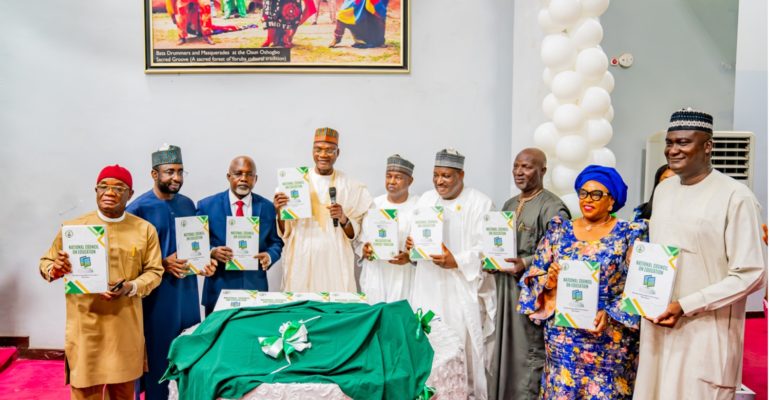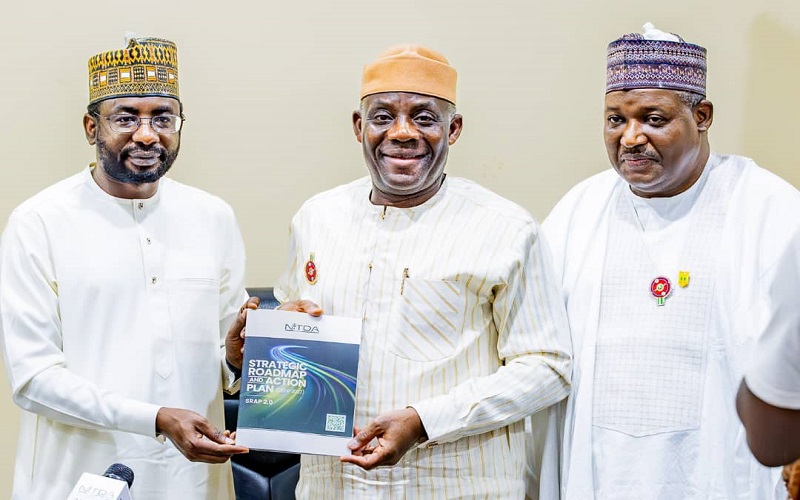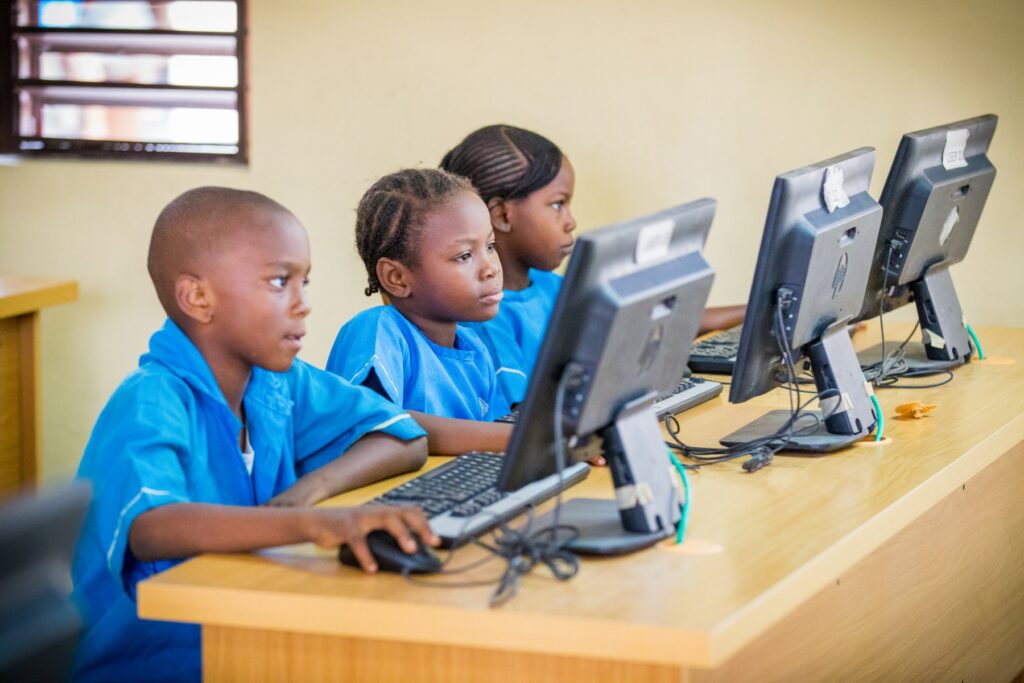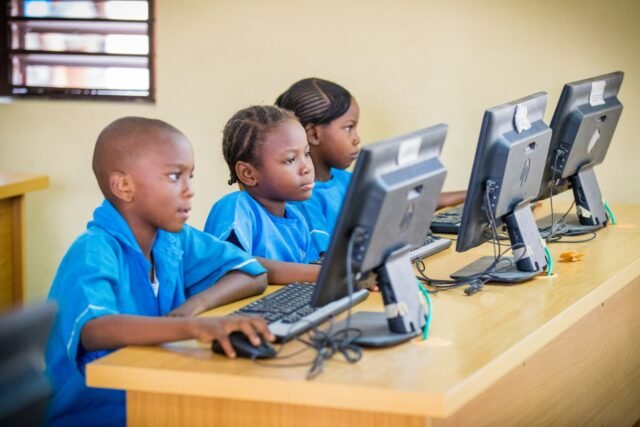In a landmark effort to bridge the gap between formal schooling and the demands of a digital economy, Nigeria has announced plans to integrate digital literacy as a core subject across its basic education curriculum, beginning January 2025.
Table of Contents

A Strategic Collaboration for Digital Skills in Basic Education
The National Information Technology Development Agency (NITDA) and the Universal Basic Education Commission (UBEC) are leading this transformational initiative in collaboration with the Federal Ministry of Education and the Nigerian Educational Research and Development Council (NERDC). In early July 2025, officials from NITDA—led by Director General Kashifu Inuwa Abdullahi—and UBEC Executive Secretary Aisha Garba formed a joint working committee tasked with designing and rolling out a roadmap for the initiative across all primary and junior secondary schools in Nigeria.
This partnership reflects a commitment to President Bola Ahmed Tinubu’s Renewed Hope Agenda, which emphasises human capital development and a vision to scale Nigeria into a digital economy.
Curriculum Reform: Moving from Talk to Action
At a stakeholders’ meeting held earlier in Abuja, Education Minister Professor Tahir Mamman confirmed that the new basic education curriculum, featuring at least 15 new skill-based subjects, will be implemented nationwide starting January 2025. Senior secondary education will follow with a revised curriculum set to begin in September 2025.
Among the new subjects are basic digital literacy and information technology, alongside vocational and technical trades such as hospitality, GSM repair, tiling, plumbing, CCTV installation, and garment making.
What Digital Literacy Means in This Context
The curriculum is not just about teaching children to code. Instead, “digital literacy” is being framed as a broad-based competency skill set, aligned with STEAM (Science, Technology, Engineering, Arts, Mathematics) methodologies. It combines everyday digital skills with problem-solving, an innovation mindset, critical thinking, and socio-technical awareness.
Dr. Garba Gandu of NERDC emphasised that the new curriculum is competency-based, with a strong focus on preparing students to compete globally. Pupils are expected to graduate with proficiency in at least two practical skills, one of which could be digital literacy or IT-related competencies.
Tackling Implementation Challenges Head-On
Nigeria has long suffered from poor implementation of educational reforms — the legacy of the 6‑3‑3‑4 system included a skills-based component, but it faltered in application. The current reform aims to remedy that by involving teacher training, stakeholder alignment, and robust monitoring systems from the outset.
Moreover, NITDA and UBEC’s joint committee is designed to ensure coordination across ministries and implementers, prioritising consistency in content, materials, teacher guides, and delivery methods across the federation.
The Broader Context: Nigeria’s Digital Ambitions
The curriculum reform is one part of a broader national strategy. Under the 3 Million Technical Talent (3MTT) programme, launched in October 2023, Nigeria aims to train three million youths in high‑demand digital skills by 2027.
The NITDA-led Digital State Initiative further expands digital literacy access by training selected youths in app development, content creation, and productivity tools in each state, although to date it primarily targets older youth rather than early education students.
Meanwhile, the Hope‑Ed programme seeks to reintegrate over 10 million out‑of‑school children into the education system by 2027, with digital learning as a cornerstone of its strategy.
Why It Matters: Shaping the Learner of Tomorrow
1. Global Competitiveness and Employability
With up to 45% of jobs in Nigeria projected to require digital skills by 2030, according to AWS research, early exposure to digital literacy could be a game‑changer for career readiness and economic growth.
2. Inclusion and Equity
Rolling out digital literacy through public schools offers hope for bridging gaps in underserved communities. However, connectivity and infrastructure remain concerns, particularly in rural areas, as do the high costs of devices and internet access.
3. Teacher Empowerment and Curriculum Innovation
The success of this initiative hinges on well-trained educators. Nigeria’s previous struggles with outdated teaching methods and poorly maintained infrastructure underscore the importance of comprehensive teacher development and curriculum support.
Spotlight: State-Level Digital Education Innovations
Bayelsa State, through its BayelsaPRIME (Promoting Reforms to Improve and Modernise Education) program, has become a case study in integrating technology into basic education. Early gains include a jump in public primary school enrollment from 25,000 to over 40,000 children, and a sharp improvement in early literacy, where Primary 1 pupils unable to read a single word dropped by 20 percentage points in just 19 weeks of the program’s launch.
This underscores the real-world potential of structured digital integration—not only in theory, but in measurable literacy outcomes.

Hurdles: Infrastructure and Digital Exclusion
Significant challenges remain. A 2023 GSMA report estimated that over 120 million Nigerians lack mobile internet access, while electricity shortages and economic hardship further limit students’ ability to engage with digital content.
In addition, one-third of Nigeria’s population struggles with basic literacy, and high out‑of‑school rates (second only to India globally with around 20 million children) compound the digital exclusion gap.
Keys to Success: Policy, Investment & Multi‑Sectoral Collaboration
A. Policy Continuity and Funding
To succeed, the initiative must be backed by sustained government funding and implementation at all levels—from federal to local government. Consistent coordination between education, communications, and labour ministries is critical.
B. Infrastructure Deployment
Rolling out this transformation means investing in school connectivity, access to devices (like laptops and tablets), and electricity solutions—especially in rural areas. Efforts such as refurbishing ICT labs in public secondary schools by private foundations point the way toward scalable models.
C. Teacher Training and Curriculum Support
Developing teacher guides, professional development frameworks, and competency-aligned lesson materials is essential. This includes equipping teachers with digital facilitation skills and ensuring classrooms transition from rote learning to inquiry-based, digitally mediated instruction.
D. Private Sector and Foundation Partnerships
Initiatives like Bildup AI’s NGN 500 million “AI in Every Classroom” and MTN Foundation’s ICT lab refurbishments show that EdTech firms and foundations can help drive implementation, especially in underserved regions.
What Families and Communities Should Expect
- From January 2025, learners in primary and junior secondary schools will begin digital literacy classes as part of the new curriculum.
- Teachers will guide students through basic digital tools, digital citizenship, and problem‑solving with technology, not just coding, but practical digital fluency.
- Vocational modules in hands‑on trades—plumbing, garment-making, sensor installation, hospitality—will run alongside digital literacy offerings.
- Monitoring and evaluation mechanisms will track implementation progress, literacy improvements, and real-world skill gains.
- Over time, the curriculum is expected to cascade into tertiary education and vocational training, creating a holistic continuum of digital readiness.

Conclusion
Nigeria’s move to formally integrate digital literacy into basic education marks more than just a curriculum change—it signals a national shift in educational ethos and future-readiness. By marrying digital skills with practical vocational training, the country is redefining what it means to be educated in 21st-century Egypt.
Success will depend on how well policies are implemented, teachers are empowered, and infrastructure is deployed. But if thoughtfully executed, this reform could unlock lifelong benefits: from reducing youth unemployment to stimulating innovation and narrowing learning gaps across Nigeria.
Join Our Social Media Channels:
WhatsApp: NaijaEyes
Facebook: NaijaEyes
Twitter: NaijaEyes
Instagram: NaijaEyes
TikTok: NaijaEyes
READ THE LATEST EDUCATION NEWS








































